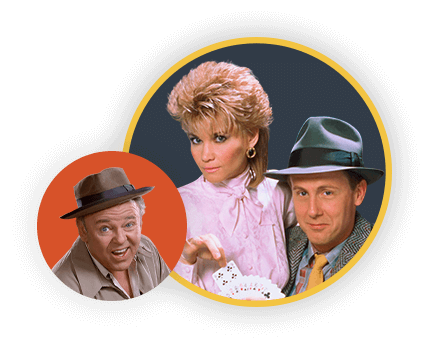35 years ago Friday Night Videos brought music videos to the masses

It was a late Friday evening in August. Well, technically, it was 12:01 a.m. on Saturday, August 1. A new television channel blinked into existence. "Ladies and gentlemen, rock and roll," a voice announced, as NASA footage from the first Space Shuttle launch, which happened four months prior, rocketed across the screen. A metal guitar riff blasted through the noise. Duh-dun-nun. Duh-nuh-nuh-nun. Cut to Apollo 11 astronauts planting a flag on the moon. The brand spanking new MTV logo unfurled.
It was a historic moment in television history. Hardly anybody was watching it.
MTV then aired its first ever video, the Buggles' "Video Killed the Radio Star." Video may have killed the radio star, but it was a slow death. At the time, a mere 18.3 million Americans had cable television. To put that into perspective, The Jeffersons was drawing an audience of about 19 million at the time. Slice that subscriber base amongst the few dozen cable channels that existed at the time, and it's easy to figure how minuscule the ratings must have been for the upstart MTV in the middle of the night on a weekend. If someone brags to you that they were watching it live, there's a good chance they're bluffing.
Music videos undoubtedly altered the pop-music landscape in the 1980s. Image mattered more than ever. Which is why there were new rock genres being born that started with the word "hair." But MTV gets too much of the credit, if not all of it.
"MTV struggled during its first few years. Conservative cable operators often refused to carry the channel," NPR wrote in 2011. There's a good reason that "I want my MTV!" became the catchphrase for the nascent channel. It was a grassroots marketing campaign to get people to hassle their local providers. By 1985, even Sting was still singing the line in Dire Straits' "Money for Nothing."
But let's rewind to the summer of '83. Dick Ebersol, erstwhile Director of Late Night Programming at NBC and co-creator of Saturday Night Live, was working as the producer of SNL. The network was looking for a replacement for SCTV on Friday nights. Ebersol had experience in bringing music to late-night television. In the Seventies, he had produced The Midnight Special for NBC. Airing from 1973-81 and presented by legendary DJ Wolfman Jack, The Midnight Special showcased everyone from a teenage Prince to Elton John. Those performances, however, were "live" onstage. With his new concept, Friday Night Videos, Ebersol would not need to worry about booking bands.
Friday Night Videos premiered in July 1983. Belinda Carlisle of the Go-Go's appeared in the first episode. The NBC show, initially a 90-minute program, offered more musical variety than MTV, which, despite its progressive reputation, was notorious for skewing towards largely white acts. Friday Night Videos, while still largely skewing towards Cyndi Lauper, Billy Joel and their ilk, featured more R&B. The Gap Band featured in an early episode. Months later, Stevie Wonder dropped in for an interview.
 NBC
NBCThe show's most clever hook was its Video Vote segment, a head-to-head battle of the hottest videos of the week. As you can see here, one early match pitted Hall & Oates' "Maneater" against "One Thing Leads to Another" by the Fixx. Viewers dialed 1-900 numbers to cast their votes. And if that battle of bouncy blond bangs was not enough of a lure, callers could win free T-shirt "every 15 seconds during voting."
As you can see from the tally, at least 76,000 viewers cast a vote, and that was excluding the West Coast. Those kinds of numbers likely outpaced MTV's audience. At the end of 1983, Friday Night Videos staged an ultimate best-of-the-year melee. ZZ Top's "Sharp Dressed Man" came out the winner.
Over the years, the show welcomed a diverse and sometimes surreal mix of celebrity guests. The cast of The Facts of Life, Yoko Ono, Ozzy Osbourne, Jerry Seinfeld, Dr. Ruth Westheimer, Pee Wee Herman, Jesse "the Body" Ventura and Tiffani Amber Thiessen stopped by. Arnold Schwarzenegger turned up with Jay Leno. Stars from Cheers, Miami Vice, Family Ties and Newhart squeezed in between clips of Quiet Riot and the Stray Cats.
Friday Night Videos continued to air until 2002, eventually turning to the kooky Tom Kenny, the eventual voice of SpongeBob SquarePants, as host. By then, thanks to the growth of cable and its non-music programming, MTV had ballooned into the juggernaut of teen pop culture. And the FTC had cracked down on costly 1-900 numbers aiming at teens. MTV may have won the war, but karma was just around the corner under the name of YouTube.





